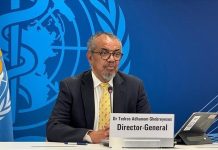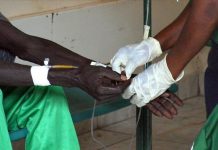AfricaPress-Tanzania: SCIENCE never lies and when a scientist makes his argument based on scientific facts it is better for non-scientists to listen.
When, on April 23, President John Magufuli told the nation that fumigation does not help in containing the spread of coronavirus, some cast doubts were cast on the stand, but now, the World Health Organisation (WHO), has reverberated the president’s statement.
The UN body says in a statement that spraying or fogging (also known as fumigation) in indoor or outdoor spaces was not an effective way of killing the Covid-19.
In its new interim guideline issued over the weekend on cleaning and disinfection of environmental surfaces in the context of the Covid-19, the global health agent states that one study has shown that spraying as a primary disinfection strategy is ineffective in removing contaminants outside of direct spray zones.
“Moreover, spraying disinfectants can result in risks to the eyes, respiratory or skin irritation and the resulting health effects,” the WHO warns.
The guidance is intended for health-care professionals, public health professionals and health authorities that are developing and implementing policies and standard operating procedures (SOP) on the cleaning and disinfection of environmental surfaces in the context of Covid-19, aviation sector, maritime sector, schools, prisons and other places of detention.
The document further insists that spraying or fumigation of outdoor spaces, such as streets or marketplaces, is also not recommended to kill the Covid-19 virus.
“Furthermore, streets and sidewalks are not considered to be reservoirs of infection for Covid-19. In addition, spraying disinfectants, even outdoors, can be harmful for human health,” the new guideline explains.
On the other hand, spraying or fogging of certain chemicals, such as formaldehyde, chlorine-based agents or quaternary ammonium compounds, is not recommended due to adverse health effects on workers in facilities where these methods have been utilized.
Spraying environmental surfaces in both healthcare and non-healthcare settings such as patient households with disinfectants may not be effective in removing organic material and may miss surfaces shielded by objects, folded fabrics or surfaces with intricate designs.
“If disinfectants are to be applied, this should be done with a cloth or wipe that has been soaked in disinfectant,” the WHO recommends.
The organisation explains that some countries have approved no-touch technologies for applying chemical disinfectants (e.g. vaporized hydrogen peroxide) in healthcare settings such as fogging-type applications.
If using a no-touch disinfection technology, environmental surfaces must be cleaned manually first by brushing or scrubbing to remove organic matter.
Moreover, spraying porous surfaces, such as sidewalks and unpaved walkways, would be even less effective.
Even in the absence of organic matter, chemical spraying is unlikely to adequately cover all surfaces for the duration of the required contact time needed to inactivate pathogens.
Moreover, spraying individuals with chlorine and other toxic chemicals could result in eye and skin irritation, bronchospasm due to inhalation, and gastrointestinal effects such as nausea and vomiting.
Environmental cleaning and disinfection in clinical, non-traditional facilities and home-based health-care settings should follow detailed SOPs with a clear delineation of responsibilities (e.g. housekeeping or clinical staff), regarding the type of surfaces and frequency of cleaning.
However, all touchable surfaces should be disinfected.
Cleaning with water, soap (or a neutral detergent) and some form of mechanical action (brushing or scrubbing) removes and reduces dirt, debris and other organic matter such as blood, secretions and excretions, but does not kill microorganisms.
It may be recalled that in early April, some regional authorities, including in Dar es Salaam, started a special campaign of spraying disinfectants in buses and in public places, believing it would help in containing the spread of the virus.
However, when addressing the country’s heads of security organs in Chato, Geita Region on April 23, President Magufuli countered the practice, saying the exercise was only effective in eliminating mosquitoes and cockroaches, and not ridding an area of coronavirus.







